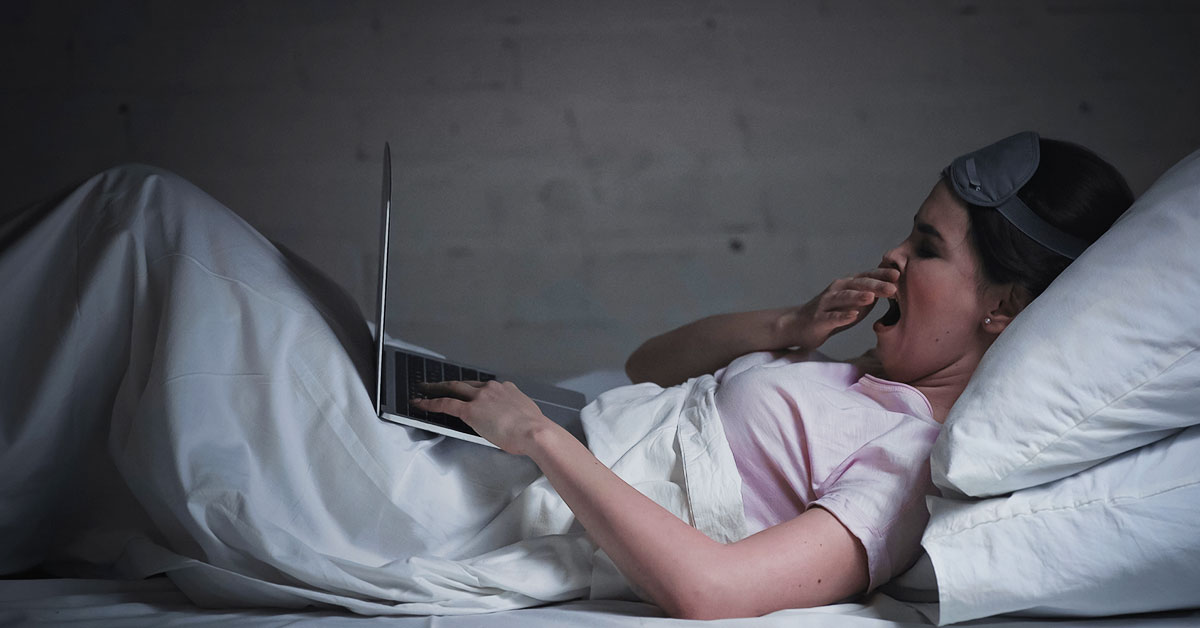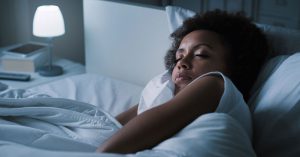Looking for tips to fall asleep faster? Quality sleep is essential to your health, but if you’re having trouble falling asleep then you could be suffering from sleep deprivation which will impact all areas of your life, including your mood and performance at work.
How to Fall Asleep Faster
Cut the Light
As we covered in a previous article What Makes You Sleep, our body’s instinct is to want to fall asleep in the evening as it gets dark and releases hormones based on the light.
Darkness is essential for sleep. The lack of light in the evening naturally signals our body to release melatonin, a hormone that helps us sleep. Help your body help you fall asleep faster by turning off the lights.
READ: What Makes You Sleep to help you fall asleep easier each night.
Put the Devices Down
According to a study from the National Sleep Foundation, 97% of respondents reported to using at least one device within one hour of going to bed at least one day per week.
If you really want to fall asleep faster then you need to be prepared to unplug each night at least one hour before bed.
In addition to stimulating your brain when you should be trying to calm down for the night, devices like phones, tablets, laptops, and televisions confuse your brain and circadian clock. These electronic devices emit blue light which can make it difficult to fall asleep and stay asleep, according to the Centers for Disease Control and Prevention.
Yellow, orange, and red lights have very little or no measurable effect on circadian clock.
Fall asleep faster by putting the devices down.
Read more here about Blue Light and Sleep here.
Quiet Your Brain
Trying to fall asleep faster but can’t get your brain to stop? You’re not alone but you’re going to need to quiet your brain to reduce your stress and anxiety in order to fall asleep faster. Here are a few things you can do right away to help silence your brain and fall asleep faster.
First, implement a bedtime routine that includes taking care of any morning activities before bed. This includes prepping the coffee pot, having your breakfast ingredients ready to go, or any other tasks that you can complete before bed to stop your brain from trying to remind you tonight that you need to do it in the morning.
Second, get that to-do list out of your head. Any other personal or work related tasks that you need to get done in the morning but can’t complete tonight? Get them out of your head anyway but writing them down on a piece of paper next to your bed. Emptying your brain onto a piece of paper will help your brain relax and stop trying to remember things while you’re trying to fall asleep.
Use Helpful Supplements
Falling asleep can be one of the most challenging areas of health as we’ve discussed. There are many supplements that may help, and you’ll find no shortage if you look online. Below I give you two unique options that work great with my patients.
To help fall asleep try adding magnesium, this will help relax muscles. I prefer Magnesium Lactate which is available (here), this may by itself help, but I also recommend adding a broader mineral supplement to help calm the nervous system. Min-Tran is a terrific product, available (here), this is a broader spectrum of a variety of minerals that work synergistically. The name refers to Mineral Tranquilizer, tranquilizer can be a scary term and I assure you this will not affect you as a tranquilizer- It simply refers to calming or relaxing the body naturally. This product will not have any impairment to you and just provides a feeling of calm.
Next Steps to Fall Asleep Faster
Those are a few of our Keys to falling asleep faster. The next step is to actually use the tips above. Implement them into your nightly routine. It will take some time for your body to adjust so be patient and give yourself time to adjust. Check Societyofwellness.com often for more tips to improving your sleep.








